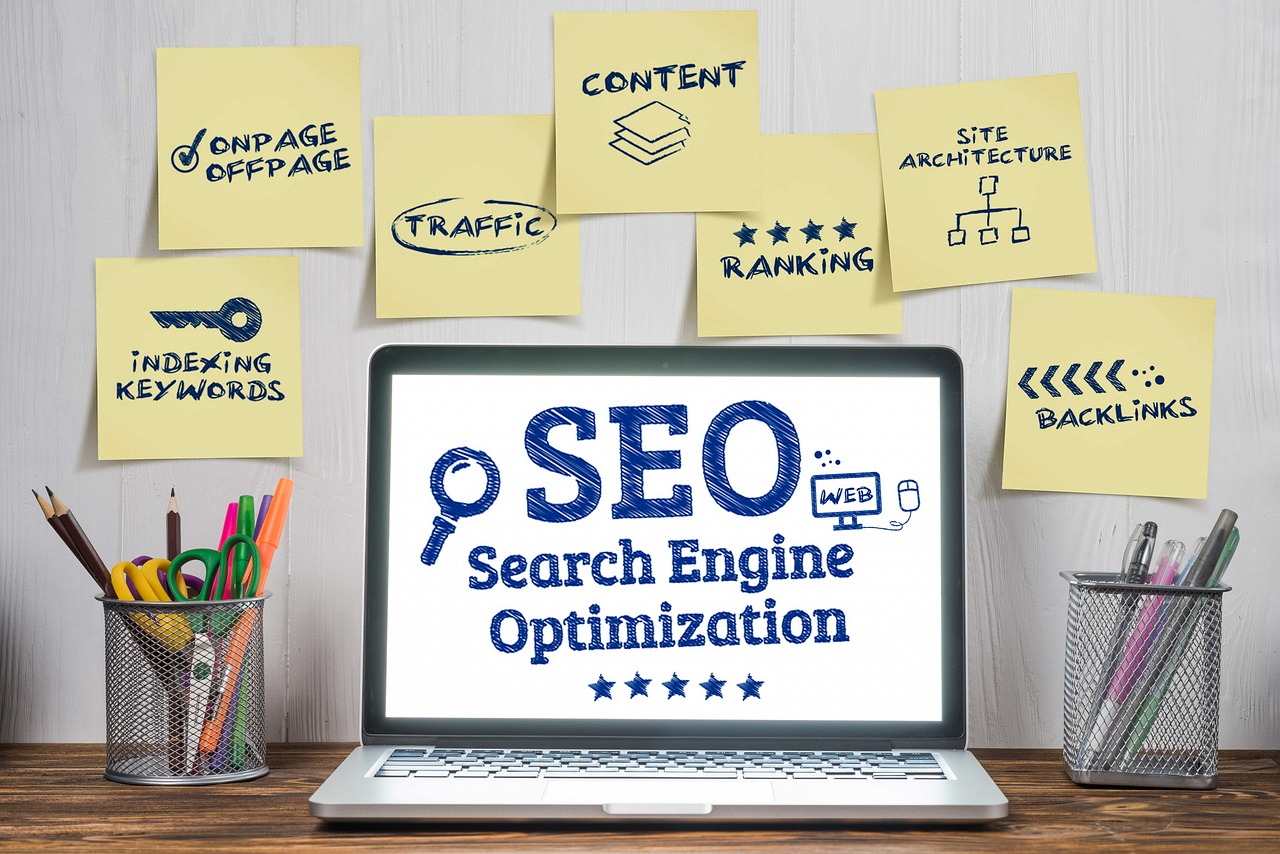Importance of SEO for Websites and Comprehensive Guide
1. Introduction
What is SEO?
Search Engine Optimization (SEO) is the process of improving the ranking of your website on search engine ranking page (SERPs). By focusing on specific keywords and enhancing the overall user experience, SEO helps websites attract organic traffic and achieve higher rankings.
Importance of SEO in the Digital Landscape
In today’s competitive online world, having a website alone isn’t enough. You need an effective SEO strategy to ensure your website is visible to your target audience. SEO for website success involves optimizing both the content and technical aspects to stay ahead of competitors.
2. Why SEO is Crucial for Websites
Visibility and Traffic Generation
SEO ensures that your website appears at the top of search results, increasing its visibility and driving targeted traffic.
Enhancing User Experience
SEO isn’t just about search engines bot; it’s also about users. A well-optimized website ensures easy navigation, fast loading times, and mobile compatibility, enhancing the overall user experience.
SEO’s Role in Branding and Authority
A higher ranking builds trust and authority in your niche. Websites that appear on the first page of search results are perceived as credible and reliable.
Long-Term Cost-Effectiveness
Compared to paid advertising, SEO provides sustainable results, making it a cost-effective strategy for long-term growth.
3. Types of SEO
On-Page SEO
- Content Optimization: Creating valuable, relevant, and engaging content that aligns with user intent.
- Keyword Research and Placement: Identifying high-value keywords and naturally incorporating them into your content.
- Meta Tags and Title Optimization: Crafting compelling meta titles and descriptions to improve click-through rates (CTR).
Off-Page SEO
- Backlink Building: Acquiring links from authoritative websites to boost credibility.
- Social Signals: Engaging on social media platforms to increase brand awareness.
- Guest Blogging: Writing articles for other websites to build backlinks and reach a wider audience.
Technical SEO
- Website Speed and Mobile-Friendliness: Ensuring your website loads quickly and functions seamlessly on mobile devices.
- XML Sitemaps and Structured Data: Helping search engines understand your site structure.
- HTTPS and Secure Connections: Prioritizing website security to build user trust.
4. Benefits of On-Page SEO
- Improving Readability and User Engagement: Optimized content keeps visitors on your site longer, reducing bounce rates.
- Importance of Quality Content: High-quality content builds trust and encourages sharing.
- Role of Internal Linking and Schema Markup: Enhancing navigation and helping search engines interpret your content.
5. Mastering Off-Page SEO
- Importance of Backlinks: High-quality backlinks signal authority to search engines.
- How to Build High-Quality Links: Focus on relevant, authoritative sites in your niche.
- Social Media’s Impact on SEO: Consistent activity on platforms like LinkedIn and Instagram can indirectly boost your rankings.
6. The Backbone: Technical SEO
- Ensuring a Crawlable and Indexable Website: Using robots.txt and sitemaps to guide search engines.
- Canonical Tags and URL Structures: Avoiding duplicate content issues and maintaining a clean URL structure.
- Error Handling: Properly managing 404 pages and setting up redirects to retain link equity.
7. Tools for SEO Success
Top Tools for Keyword Research
- Google Keyword Planner: Identifies high-volume keywords.
- Ahrefs: Provides detailed keyword insights and competitive analysis.
Content Optimization Tools
- Yoast SEO: Ensures content is optimized for readability and keywords.
- SEMrush: Offers comprehensive on-page optimization suggestions.
Technical SEO Analysis Tools
- Screaming Frog: Crawls websites to identify technical issues.
- GTmetrix: Measures page speed and performance.
8. Actionable SEO Tips for Beginners
- Conduct a Thorough SEO Audit: Identify and fix on-page, off-page, and technical issues.
- Importance of Creating User-Focused Content: Write content that answers user queries.
- Prioritize Mobile-First Indexing: Ensure your site is mobile-friendly as search engines prioritize mobile experiences.
9. SEO Myths Debunked
- “SEO is a One-Time Task”: SEO requires continuous effort to adapt to algorithm updates.
- “Keywords Are No Longer Important”: Keywords remain crucial for matching user intent.
- “Backlinks Don’t Matter Anymore”: High-quality backlinks are still a major ranking factor.
10. How to Measure SEO Success
- Metrics That Matter:
- Organic Traffic
- Bounce Rates
- Click-Through Rates (CTR)
- Regular Analytics Checks: Use tools like Google Analytics and Search Console to track progress.
11. Future Trends in SEO
- AI and Voice Search Optimization: Adapting to the growing use of voice assistants.
- Importance of Core Web Vitals: Focusing on loading speed, interactivity, and visual stability.
- Video and Visual Content Strategies: Leveraging multimedia to engage audiences.
12. Integrating SEO with Content Marketing
- Content Strategy for SEO: Plan content around target keywords and user intent.
- Using Pillar Content and Topic Clusters: Organize content to cover broad topics and related subtopics.
- Repurposing Content: Turn blogs into videos, infographics, or social posts to maximize reach.
13. Local SEO Strategies
- Google My Business (GMB) Optimization: Ensure your GMB profile is accurate and complete.
- Importance of NAP Consistency: Keep your Name, Address, and Phone Number uniform across all platforms.
- Reviews and Local Backlinks: Encourage customer reviews and collaborate with local websites.
14. Common SEO Mistakes to Avoid
- Neglecting Mobile Optimization.
- Overstuffing Keywords.
- Ignoring Technical SEO.
15. Conclusion
A balanced SEO strategy involving on-page, off-page, and technical optimization is key to website success. Start your SEO journey today to achieve sustainable growth and visibility.
16. FAQs
- What Are the Primary Types of SEO? On-page, off-page, and technical SEO.
- How Often Should I Update My SEO Strategy? Regularly review and update based on analytics and algorithm changes.
- Can I Do SEO Myself, or Do I Need an Expert? Beginners can start, but experts provide advanced insights.
- Which Tools Are Essential for SEO Beginners? Tools like Google Keyword Planner, Yoast SEO, and Screaming Frog.
- How Long Does It Take to See SEO Results? Results typically take 3-6 months of consistent effort.

